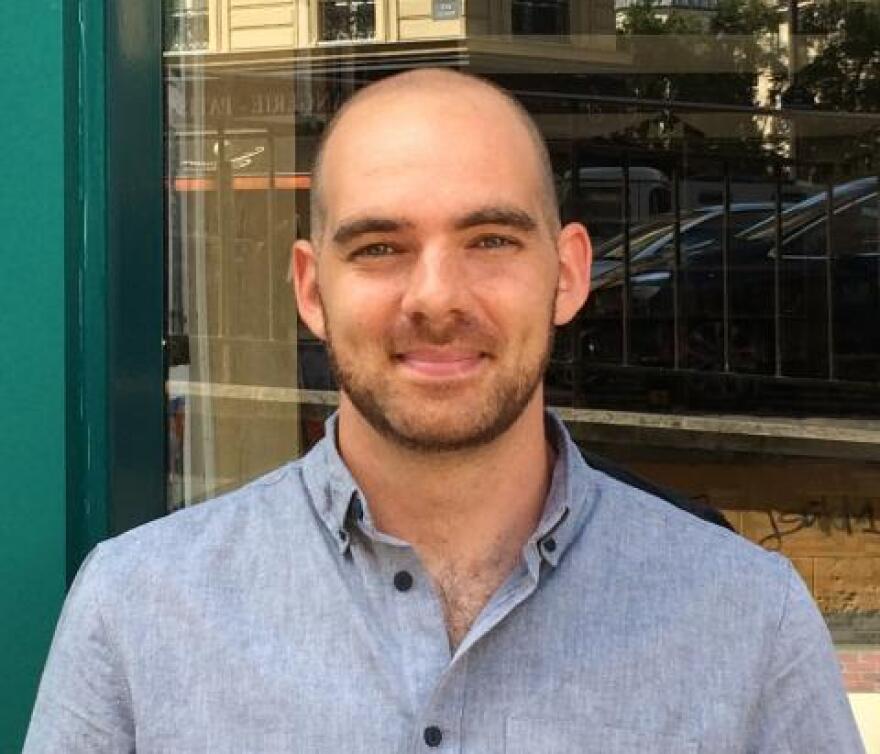In Charlotte, 84% of residential land is zoned for single-family homes. City planners here have tossed around the idea of opening those neighborhoods up to other types of housing – more duplexes and some triplexes, for example.

Many cities across the country have made zoning changes to allow for more density – or "up-zoned" – to increase the amount of affordable housing. As part of our series Finding Home, Yonah Freemark, with the Massachusetts Institute of Technology's Department of Urban Studies and Planning, joins WFAE's "Morning Edition" host Lisa Worf to look out how some of these changes have played out.
In the case of Chicago, up-zoning actually drove up the cost of housing.
Worf: What are the goals behind some of these zoning changes?
Freemark: So the general idea is that zoning that only allows single-family homes, which is present in most of our cities today, like in Charlotte, has the tendency to be exclusionary. In other words, it prevents certain people who can't afford to live in neighborhoods from being able to live there, and it also may reduce the affordability of those neighborhoods in general because not enough housing is being constructed. And so those two ideas are really the cause for the momentum we're seeing now around these changes.
Worf: And what are we seeing as far as those impacts in those areas when cities are either eliminating single-family zoning or trying to increase density by up-zoning?
Freemark: So, unfortunately we don't have a huge amount of data right now on what happens after you changed the zoning, especially when it comes to single-family home neighborhoods. However, I did some research on some neighborhoods that were up-zoned in the city of Chicago, and what I found was concerning, at least for the short term.
And what I found specifically was that in the five or so years after the zoning was changed, in that the city allowed greater amounts of construction in those areas, there not only was no additional construction that occurred in those places but, actually, the value of the land where the zoning change increased. And that raises concerns about things like displacement and gentrification.
Worf: And so these were specifically neighborhoods — low income neighborhoods — that the city was trying to drive investment to?
Freemark: So it was actually a mix. About half of the neighborhoods were low income. The other half were higher income, but the results were similar all across the board. We saw an increase in property values in many of them, and we saw very little change in construction in all of them. So that suggests that we're going to have to wait quite a bit to get the positive outcomes from these zoning changes. They won't happen immediately, and we need to come up with strategies in the meantime to help protect neighborhoods that may see increased property values due to things like real estate speculation.
Worf: Why did housing prices go up? What was behind that dynamic?
Freemark: I think one key element of up-zoning is that what it does is it suggests to potential developers that the land that they currently own or that they want to buy is worth more because whereas they used to be able to build, for example, one housing unit on-site, they can now build two or three housing units on site. And that inherently makes the land more valuable for them.

And so we can refer to this as property speculation or as simply property values adjusting to the value of land provided by zoning. But in either case up-zoning is essentially an incentive for future redevelopment of that land. And so what I found in the increase in property values on the areas that were up-zoned makes some sense from that perspective. There was an appropriate response given the change in what's allowed.
Worf: So, is this a boon for developers, then?
Freemark: There is no question that many landlords in the city of Chicago saw a benefit when their land was up-zoned, because, essentially, land that previously was worth a certain value got an automatic boost by the city. And that gave those landlords, frankly, an immediate and sort of tax-free benefit that they were able to take advantage of.
So, there is no question that incumbent landlords were able to take advantage of that from some perspective. The question is whether it will benefit those landlords or housing affordability overall more over the long term. And that's a question that we need more evidence to be able to answer.
Worf: If a city eliminates single-family zoning or is is trying to increase density with zoning, what kind of policies do you think it needs to achieve the desired result of having more affordable housing?
Freemark: So, that's a big question that a lot of scholars and a lot of people working for city governments are thinking about right now. But one thing that cities can absolutely do immediately is start investing more in affordable housing. We have a major deficit of housing that's affordable for people who are low income in cities all across the country.
And that problem of affordability has only increased over the last few years. So, one thing cities can do is literally start funding new construction that goes directly to those low-income households and make sure they have somewhere to go if they're priced out of certain neighborhoods. Another option is to create rules about what kind of redevelopment is allowed.
For example, you could say that if a certain parcel is currently occupied by low-income people who are living in rented aparetments, we give them a certain protection and we say, "You're not allowed to redevelop that apartment building because right now that apartment building is serving an important role for this community and providing affordable housing." So, both of these approaches have been discussed in places like California, but they're relevant to places all over the country.
Worf: And, in North Carolina, I have to say, I am not sure if a city council can make that designation.
Freemark: Right. So, North Carolina, which is where I'm from actually, I'm from Durham, has more restrictive rules on what local governments are able to do in many cases. So, that means that in some ways the state government may need to change the law about what it allows cities to do in terms of protecting certain neighborhoods. But there are ways for city governments to invest directly in affordable housing.
Worf: Up-zoning and eliminating single-family zoning, how much do you think that should be as part of a strategy to increase affordable housing?
Freemark: I think it's one key strategy, but only one of many important strategies that are necessary. You know, when you talk about up-zoning and getting rid of single-family zoning, you are making an important step in getting rid of a practice in the law that, frankly, has made many neighborhoods — a lot of suburban neighborhoods but also many neighbors within our cities — off limits to low-income people, and that's not fair if we believe in things like equity, improving social justice and things of that sort. But we also need to make sure we back up those up-zonings with other policies like affordable housing and rent protections for people who currently live in neighborhoods. We need to do all those strategies together or we may end up with some negative results.
_



